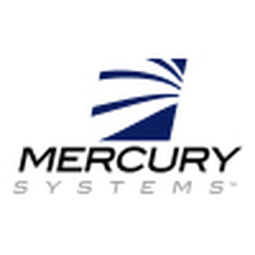Mercury Interactive Llc
Note: This article was originally posted on Loadtester.com, and has been migrated to the Northway web site to maintain the content online. The story of Mercury Interactive needs to be told. I hope someday someone within the company will write a book on the early years and discuss their great successes. It would probably be a fascinating tale.
We are sure these amazing devotional songs will make your Maha Shivratri more special. Peaceful om namah shivaya youtube. Stay blessed! As our favorite festival Maha Shivratri is nearing, we present this awesome meaningful mantra on the occasion of the same. Om Namah Shivaya!!!

I think a lot of people would also like to know more about events which led up to the HP acquisition last year. I am not sure we will ever know the whole truth. What is known is that in 2004, Mercury was aiming for a spot as one of the top five software companies in the world. In 2006, they were sold. What happened? I don’t have any really juicy insider information, only what I have read online and my personal experience with Mercury as a customer and solutions partner. Is there a “story behind the story”?
There very well could be. It’s only a theory, but I think it’s important that we try to learn how the actions of a few had huge impacts on an entire company.
Founder and CEO usermind • VP of Products @ Apptio, led acquisition of Opsware, Presales and Products@Mercury Interactive. Kannada ebooks free download. Samuel Harrison. Investing in tech at @ Naspers. Founder of @ Indefatigable Media House. Ex- @ Morgan Stanley, @ Seraphim Capital, @ University of Cambridge, @ IE Business School.
Mercury Interactive Topaz
Pay By The Drink In order to understand the context, we need to go back to 2004. Does anyone else remember when Mercury decided to make a big deal out of “software on demand”?
I distinctly remember it because I was a customer at the time, and all of the sales guys were pushing it hard. Christopher Lochhead, chief marketing officer of Mercury, stated at Sand Hill Group’s Software 2004 conference, “I believe the traditional enterprise software model is dying.” Merrill Lynch was all over it, even creating an index for it. But not everyone was in love with the idea of term licenses. Because of deferred revenue. Mercury ended 2003 with $150 million of it. For the uninitiated – when companies sell a 1-year subscription of “software as a service” or “managed service” using a term license, they typically hold off showing all of the money as revenue at the time of sale. If I buy the service for 12 months in January, the company would only count the first three months in their 1st quarter earnings, and each quarter they would add more.
Thus the revenue is deferred until it becomes realized throughout the term. If I would have spent the same amount of money on a permanent license, the entire amount would show up in first quarter earnings, making revenue look better for the company. Wall Street always wants to see bigger revenue numbers – and right now!

Mercury Interactive Testing Tools
In this Information Week article, it discusses how the current model (perpetual licensing) needs to be fixed. Merrill Lynch is one of the few financial companies that seemed to understand the model. They went on record to state that if you look at the numbers through their index which accounted for the term licensing model, Mercury stock was “much cheaper than conventional[price-to-earnings] wisdom might apply”. There was no doubt that term licensing was big on hype. THIS published document by Gartner in October 2004 goes so far as to say it will be THE business model of choice in 2008. Does anyone see that happening next year?
I don’t think so. But that was the talk of the town back then What does any of this have to do with the sale of Mercury to HP? My theory is that Amnon Landan’s vision for Mercury started pointing in a different direction than that of the board of directors and major stock holders. Perhaps it started with the issue of term licensing, but there could have been other things that began to add up too. I am not a financial analyst by any means, but I know Mercury was a darling of Wall Street up to that time. Mercury never got bogged down in services and focused on selling software. Unlike Compuware, Mercury used their solution partner ecosystem to handle most of the testing services and only maintained a bare bones professional services staff for the high profile, high dollar stuff.
Mercury Interactive Test Director
They put their money and effort into research and development in Israel. This combination of things is apparently what made the stock so well favored within the software sector. So what changed? At some point in 2005, I noticed that the hype stopped. The sales teams started saying that perpetual licenses were good again and term licenses were not that great after all.
Comments are closed.